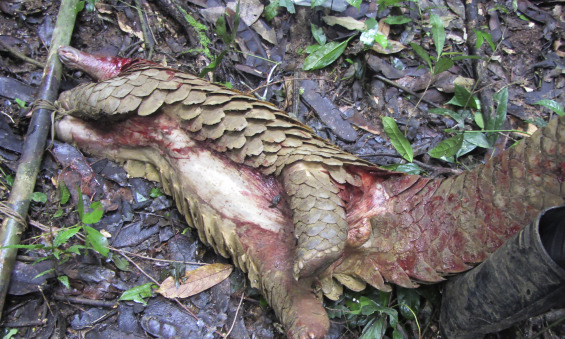By Atoyebi Nike
Conservation group Wild Africa has issued a strong call to action, urging Nigerian authorities and citizens to confront the growing threat of zoonotic diseases by ending the illegal bushmeat trade, fast-tracking the wildlife protection bill, and safeguarding natural habitats.
Zoonotic diseases—illnesses transmitted from animals to humans have triggered some of the deadliest outbreaks globally. Nigeria has not been spared, with Ebola, Lassa Fever, Mpox (Monkeypox), and COVID-19 all affecting its population in recent years. According to the World Health Organization, 75% of emerging infectious diseases in humans originate from animals, and 71.8% of these are linked directly to wildlife.
In Nigeria, the bushmeat trade especially involving endangered species like pangolins, bats, and monkeys remains widespread, despite known risks. Markets in urban centers such as Lagos, Abuja, and Port Harcourt continue to see brisk demand, even though federal and state crackdowns during past outbreaks led to temporary closures.
“World Zoonosis Day is a reminder that protecting wildlife means protecting human health,” said Dr. Mark Ofua, West Africa Representative for Wild Africa. “Through the One Health approach integrating human, animal, and environmental health—we can break the chain of zoonotic transmission. This requires cooperation across every level of society.”
The NGO is advocating for the Endangered Species Conservation and Protection Bill, which recently passed its third reading in the National Assembly and is awaiting Senate deliberation. The bill, once signed into law, would significantly strengthen legal frameworks for wildlife protection in Nigeria.
Zoonotic transmissions often occur through direct contact with animals or animal products via bites, faeces, contaminated environments, or through the consumption of bushmeat. While domestic animals and livestock are commonly involved, most recent pandemics, including COVID-19, have been traced to wildlife.
Recent zoonotic trends in Nigeria include:
-
Mpox: Over 1,000 confirmed cases since 2017
-
Lassa Fever: Endemic and widespread through rodent contact
-
Yellow Fever: Nearly 600 suspected cases in early 2024
-
Anthrax: Recent outbreak in Ghana with fatalities in livestock
-
Marburg Virus: Emerging threat in West Africa
-
Avian Influenza (Bird Flu): Detected in multiple West African nations
Wild Africa warns that continued habitat destruction, biodiversity loss, and illegal wildlife consumption are not only imperiling human health but also undermining vital ecosystems.
While vaccines and medical interventions remain important, experts emphasize prevention through education, legislation, and enforcement. “We can’t vaccinate our way out of ecological neglect,” Dr. Ofua said.
In observance of World Zoonoses Day—marked annually on July 6 in honor of Louis Pasteur’s 1885 rabies vaccine breakthrough. Wild Africa has launched a nationwide awareness campaign. Through radio, TV, print, billboards, and social media, the group aims to educate the public about the deep connections between human, animal, and environmental health.
“The time to act is now,” said Dr. Ofua. “Bushmeat consumption must end. Our ecosystems must be preserved. And we must recognize that our health is inextricably tied to that of the planet.”
Wild Africa


